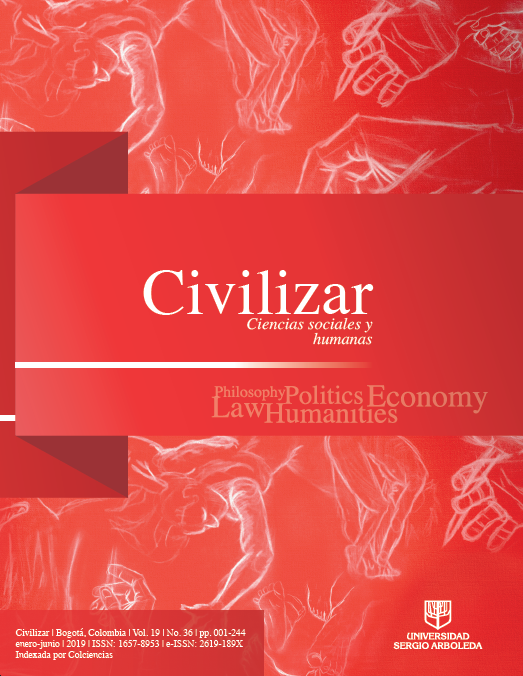Abstract
The present work aimed to indicate some aspects for understanding motivation from the dynamic fullness, that is, from the very purpose of the educational event. This research analyzes human motivation during the learning process in the light of the anthropological thought of Francisco Ruiz Sánchez. Through a hermeneutical methodology of his published and unpublished writings, we detailed the three main elements of the educational, motivational process: a) the method used, b) the proposal of good objects, and c) the awareness of the value of the object. It is concluded that motivation constitutes a relational aspect within the framework of a process in which cognition or intellectual tendency towards an object of good knowledge intervenes. This object has also been presented sensitively and can be perceived as valuable by the learner.
References
Atkinson, J. W. (1964). An Introduction to motivation. Princeton, United States: Van Nostrand.
Atkinson, J. W. (1974). Motivation and achievement. New York, United States: Holt.
Barrio Maestre, J. M. (2004). Elementos de antropología pedagógica (3.ª Ed.). Madrid, España: Rialp.
Blanco, G. (2002). Curso de Antropología Filosófica. Buenos Aires, Argentina: EDUCA.
Cecchini, J. A., Méndez-Giménez, A., & García Romero, C. (2019). Relationships between 3 × 2 achievement goals and the satisfaction of the basic psychological need for competence. Revista de Psicodidáctica, 24(1), 53-61. doi: https://doi.org/10.1016/j.psicod.2018.09.001
Cole, J. S., & Korkmaz, A. (2010). Using Longitudinal Data to Improve the Experiences and Engagement of First-year Students. New Directions for Institutional Research, 2(Esp.), 43-51. doi: https://doi.org/10.1002/ir.371
Daura, F. (2015). El estudio del compromiso académico. Panorama general sobre su abordaje. Diálogos Pedagógicos, 13(25), 54-75. doi: https://doi.org/10.22529/dp
Deci, E., & Ryan, R. (1985). Intrinsic motivation and self-determination in human behavior. New York, United States: Plenum. doi: https://doi.org/10.1007/978-1-4899-2271-7
Deci, E., & Ryan, R. (2000). The 'What' and 'Why' of Goal Pursuits: Human Needs and the Self-Determination of Behavior. Psychological Inquiry, 11(4), 227-268. doi: https://doi.org/10.1207/S15327965PLI1104_01
Di Marco, M. E., Portela de Nieto, A. I., González, M. L., Boarini, M. G., & Difabio de Anglat, H. E. (2018). El hecho educativo desde la perspectiva de Francisco Ruiz Sánchez. Contribuciones para su comprensión pedagógica-didáctica. Dilemas contemporáneos: Educación, Política y Valores, VI(1), 1-21.
Elliot, A., & McGregor, H. (2001). A 2 x 2 Achievement goal framework. Journal of Personality and Social Psychology, 80, 501-519. doi: https://doi.org/10.1037/0022-3514.80.3.501
Gadamer, H. G (1994). Verdad y método. Salamanca, España: Sígueme.
Gadamer, H. G. (2015). Verdad y Método II (9.ª Ed.). Salamanca, España: Sígueme.
García Hoz, V. (1962). Cuestiones de filosofía individual y social de la educación. Madrid: Rialp.
Heckhausen, H. (1991). Motivation and action. Berlin: Springer-Verlag. doi: https://doi.org/10.1007/978-3-642-75961-1
Hernández de Lamas, G. B. (2000). Los desafíos del aprendizaje. Buenos Aires: Instituto Mater Dei.
Kuhl, J. (2000). A functional design approach to motivation and self-regulation: The dynamics of personality systems and interactions. En M. Boekaerts, P. Pintrich y M. Zeidner (Eds.), Handbook of self-regulation (pp. 111-163). San Diego, CA, United States: Academic.
Kuhl, J., & Beckman, J. (1985). Action control: From cognition to behavior. New York, United States: Springer-Verlag. doi: https://doi.org/10.1007/978-3-642-69746-3
Lens, W., Matos, L., & Vansteenkiste, M. (2008). El profesor como fuente de motivación de los alumnos: Hablando del qué y del por qué del aprendizaje de los alumnos. Revista Digital de Investigación en Docencia Universitaria, 4(1), 1-9. doi: https://doi.org/10.19083/ridu.4.9
Lersch, P. (1966). La estructura de la personalidad. Barcelona, Espaa: Scientia.
Maritain, J. (2008). La educación en la encrucijada. (Trads. C. Segade y J. M. Garrido). Madrid, España: Palabra, S.A.
Millán Puelles, A. M. (1983). La formación de la personalidad humana. Madrid: Rialp.
Niemiec, C., Ryan, R., & Deci, E. (2010). Self-Determination Theory and the Relation of Autonomy to Self-Regulatory Processes. En R. Holy (Ed.), Handbook of Personality and Self-Regulation (pp. 169-191). Singapore: Wiley-Blackwell. doi: https://doi.org/10.1002/9781444318111.ch8
Nuttin, J. (1973). La motivación. En J. Nuttin, P. Fraisse y R. Meili, Motivación, emoción y personalidad. Buenos Aires, Argentina: Paidós.
Nuttin, J. (1980). Motivation et perspective d'avenir. Lovaina, Bélgica: Presses Universitaires.
Perkins, D. (2001). La escuela inteligente. Del adiestramiento de la memoria a la educación de la mente (2.ª reimp.). Barcelona: Gedisa.
Ruiz Sánchez, F. (1962a). Perfectibilidad y Educabilidad. Sapientia, XVII(65), 178-192.
Ruiz Sánchez, F. (1962b). El concepto del hombre y la educación. Boletín de Estudios Políticos y Sociales, 12, 65-80.
Ruiz Sánchez, F. (1972). Acerca de la Educabilidad. Cuadernos de Pedagogía, 1, Mendoza, Facultad de Filosofía y Letras, Universidad Nacional De Cuyo.
Ruiz Sánchez, F. (1973a). Esquema tentativo para una estructuración de la temática fundamental de la Pedagogía. Mendoza: Instituto de Filosofía, Facultad de Filosofía y Letras, Universidad Nacional De Cuyo.
Ruiz Sánchez, F. (1973b). Los Fines de la Educación. Cuadernos de Pedagogía, 2. Mendoza, Facultad de Filosofía y Letras, Universidad Nacional de Cuyo [Parcialmente incorporado en la segunda parte de su obra Fundamentos y Fines de la Educación].
Ruiz Sánchez, F. (1978a). Fundamentos y Fines de la Educación. Mendoza: Facultad de Filosofía y Letras, Universidad Nacional de Cuyo.
Ruiz Sánchez, F. (1978b). Introducción a los fundamentos antropológicos de la educación. Actas de las Primeras Jornadas Nacionales Universitarias de Filosofía de la Educación (pp. 39-58). Paraná, Universidad Nacional de Entre Ríos.
Sandoval-Muñoz, M. J., Mayorga-Muñoz, C. J., Elgueta Sepúlveda, H. E., Soto Higuera, A. I., Viveros Lopomo, J., & Riquelme Sandoval, S. V. (2018). Compromiso y motivación escolar: Una discusión conceptual. Revista Educación, 42(2), 1-14. doi: https://doi.org/10.15517/revedu.v42i2.23471
Portela, A. I., Boarini, M. G., Di Marco, M. E., & González, M. L. (2018). El problema de la brecha epistemológica en las teorías psicoeducativas. El Guiniguada, 27, 71-82. doi: https://doi.org/10.20420/ElGuiniguada.2018.207
Vázquez, S. M. (2009). Motivación y voluntad. Revista de Psicología, 27(2), 185-212.
Vázquez, S. M. (2012). La Filosofía de la Educación. Estado de la cuestión y líneas esenciales (2.ª Ed.). Buenos Aires, Argentina: CIAFIC.
Villalba, M. (2001). Inferencia y conocimiento previo de lógica. Relaciones y dependencias. Sapientia, LVI, 251-264.
Weiner, B. (2010). The Development of an Attribution-Based Theory of Motivation: A History of Ideas. Educational Psychologist, 45(1), 28-36. doi: https://doi.org/10.1080/00461520903433596

This work is licensed under a Creative Commons Attribution-NonCommercial-NoDerivatives 4.0 International License.
Copyright (c) 2019 Journal Civilizar: Social and Human Sciences


